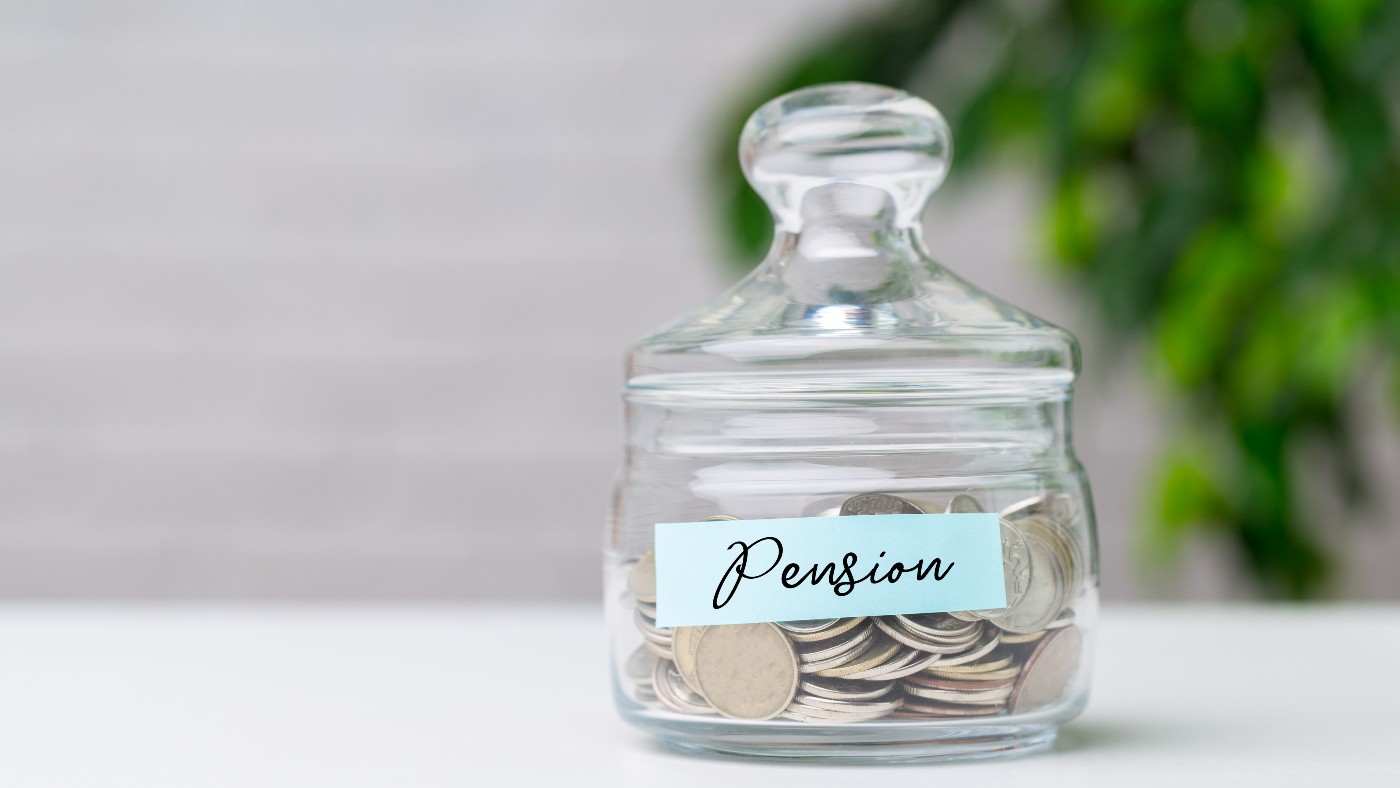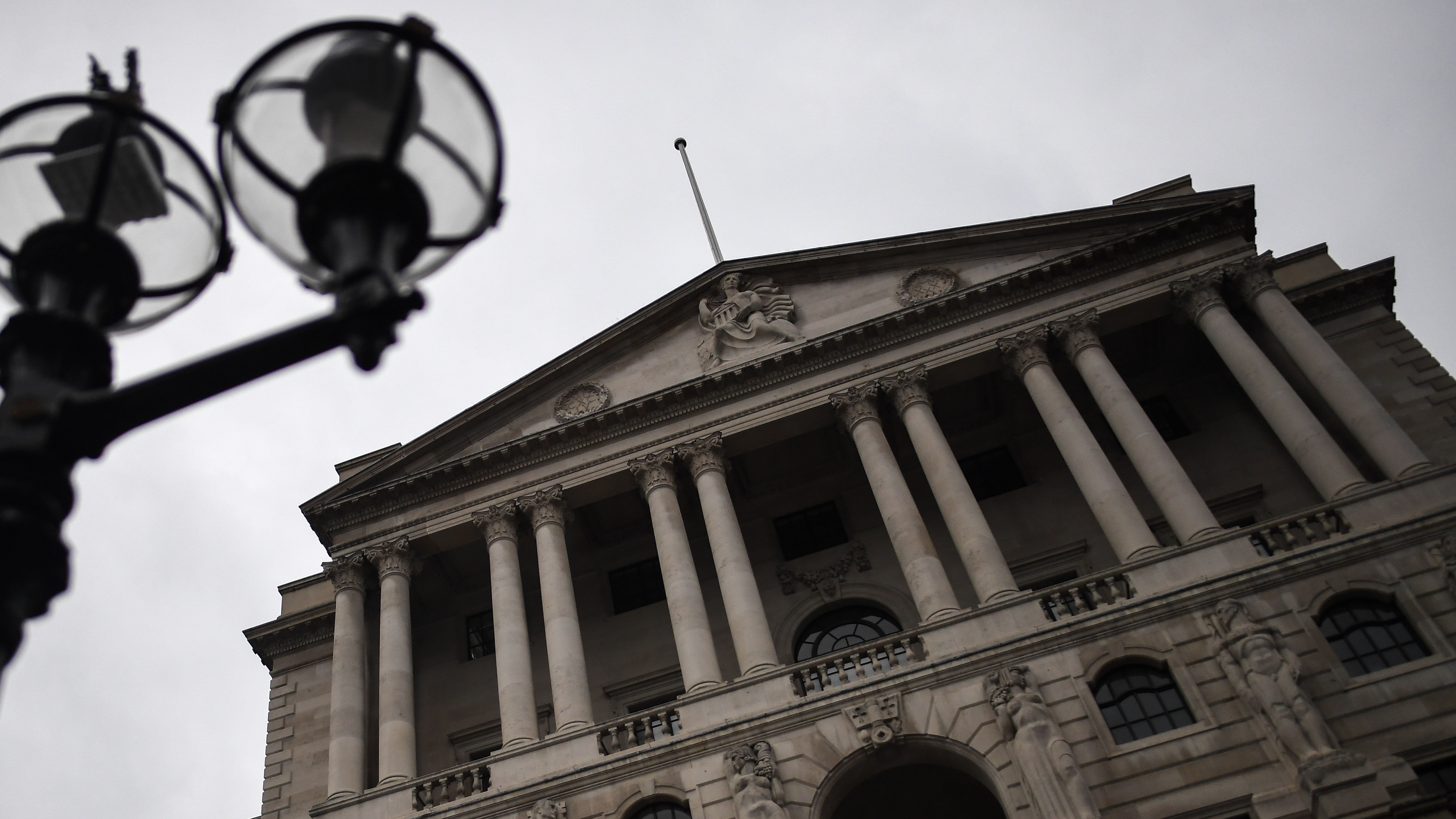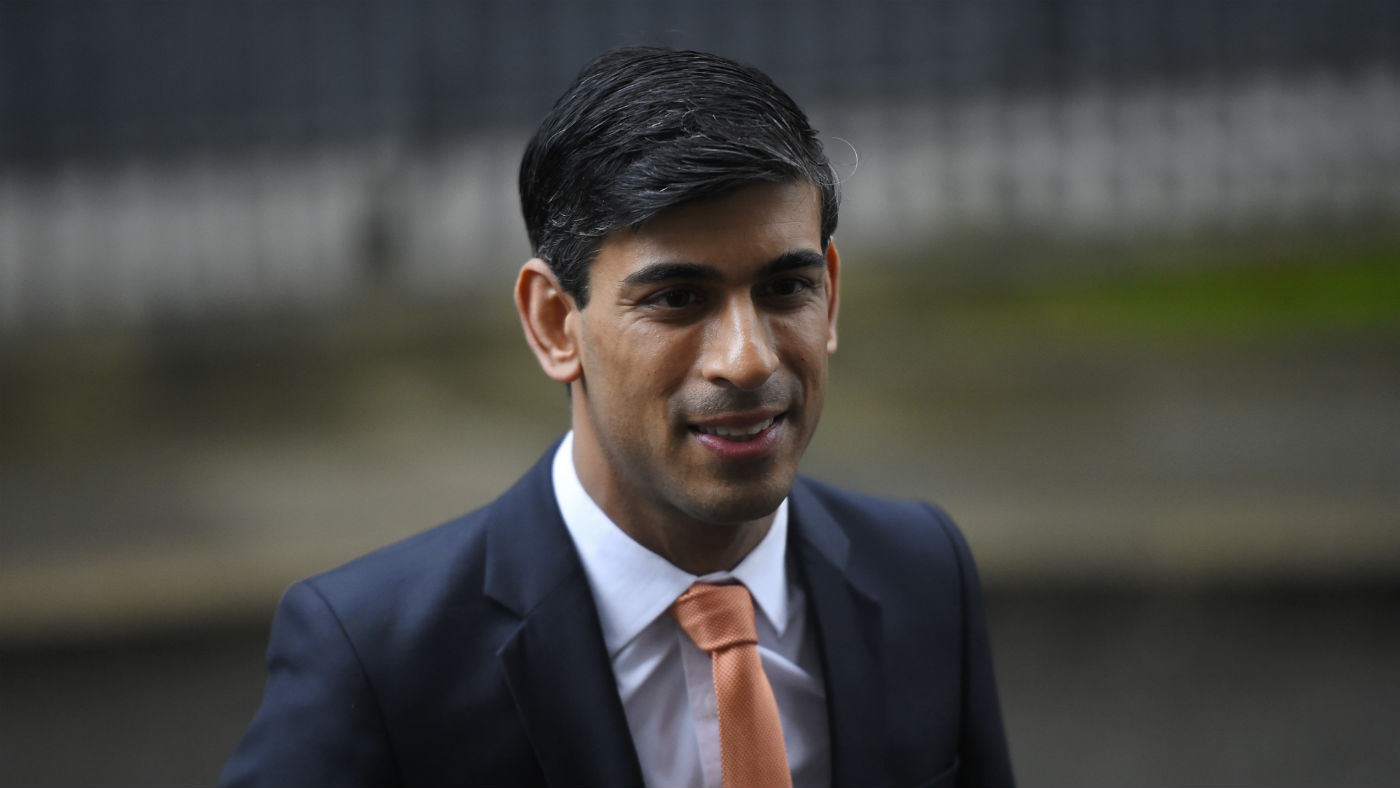What the controversial triple lock means for state pensions
Hints that the policy may be means-tested met with backlash and reassurances

A free daily email with the biggest news stories of the day – and the best features from TheWeek.com
You are now subscribed
Your newsletter sign-up was successful
The state pension triple lock could be means-tested under a future Tory government, Conservative leader Kemi Badenoch has suggested.
Speaking on an LBC phone-in, she said that, while her party had supported the policy throughout their 14 years in government, going forward there was a need to "solve the problem" of growth and her party would be "examining means-testing" as a way to reduce the pensions budget and "give something to the next generation".
Badenoch later clarified that she was not talking specifically about the triple lock, said The Telegraph. But Labour has been quick to reassure pensioners, with Pensions Minister Torsten Bell confirming that the triple lock will stay in place.
The Week
Escape your echo chamber. Get the facts behind the news, plus analysis from multiple perspectives.

Sign up for The Week's Free Newsletters
From our morning news briefing to a weekly Good News Newsletter, get the best of The Week delivered directly to your inbox.
From our morning news briefing to a weekly Good News Newsletter, get the best of The Week delivered directly to your inbox.
The idea of making changes to the triple lock has been floated around by economists and politicians for several years, especially given the year–on-year increases of the sum.
In April 2024, the state pension increased by 8.5% to £221.20 a week for the new state pension, and £169.50 a week for the old basic state pension - the latter intended for those who reached retirement age before 2016.
Further increases are due this year, "a rise of £363 a year" for those "on the full old basic pension", and offering "£472 a year" for those in receipt of the full new state pension, said the BBC.
But Badenoch's intervention means she has now been accused of "putting pensioners on notice", said The Independent, with the government claiming the party has "let the mask slip".
A free daily email with the biggest news stories of the day – and the best features from TheWeek.com
What is the triple lock?
The triple lock is a policy introduced in 2010 by the coalition government. It was designed to help protect pensioners' incomes by increasing the state pension in line with average wages, inflation, or by 2.5%, whichever is higher.
The wage data is based on pay growth figures for May to July, released in September by the Office for National Statistics. In 2024, average wages excluding bonuses "rose 4.1% between May and July", said The Times Money Mentor, and this is the figure which will be used for the triple lock in the coming year.
The Institute for Fiscal Studies (IFS) has warned the triple lock is "increasing public finance pressures" and risks the sustainability of the state pension system, creating "heightened uncertainty" for people retiring in the future.
Why is the triple lock so controversial?
There are "issues and challenges" around funding the triple lock, explained Unbiased.
Department for Work and Pensions spending on the triple lock has increased from £69.8 billion when it launched in 2010 to £104.9 billion in 2021/2022, making it a "politically emotive" subject that, considering the ageing population and falling birth rate, won't go away any time soon.
The IFS said the triple lock has added £11 billion to spending on the state pension in 2023/2024 and will cost an extra £2 billion in 2024/2025.
Economists often criticise the triple lock as being "too expensive to maintain", said The Times Money Mentor, with about 60% of welfare spending going towards pensioners. Critics also suggest there is "intergenerational unfairness". Should younger people "subsidise the income of older people at a time when they may be struggling with their own living costs"?
By how much could the state pension rise?
Those on the full new state pension will now receive £230.25 a week from April 2025 because of the triple lock guarantee.
But while the figures suggest this is a substantial increase, this "doesn't reflect the reality on the ground for many", said MoneySavingExpert. In fact, only "one in four" pensioners will get this increase, as it only applies to those who hit state pension age on or after 6 April 2016.
As the "majority are still on its predecessor", the 4.1% rise will mean a "smaller figure" of £176.45 a week in the coming year.
However, while pensioners and those approaching retirement may be looking forward to the increase, due to frozen tax thresholds, pensioners are "facing a 'retirement tax on their state pension income within two years", said The Telegraph. The Labour government has "vowed" to keep the tax threshold frozen at £12,570 until 2028, similar to the Conservative policy, and so pensioners on the full sum will only need a small amount of extra income to put them in the tax net.
What is the triple lock alternative?
While the triple lock is staying in place "for now", the policy is becoming increasingly expensive, said The Times Money Mentor. By this year, the newspaper estimates state pension spending will cost the country "more than education, policing and defence combined". Reforming the policy is not a far-fetched idea, and the government could suspend the policy if necessary.
In 2022-23, the Conservative government did temporarily remove earnings from the equation, due to a "post-lockdown spike in wages", said NerdWallet, and use the inflation measure of 3.1% to increase pensions that year.
Alternatively, a "double lock" system could be implemented, which would "remove the minimum guaranteed 2.5% increase", said MoneyWeek. This option would see the state pension rise only in line with earnings growth or inflation.
A more "pessimistic scenario", added Unbiased, would be for the state pension to have only a single lock, linked either to wages or inflation, but this may mean pensioners' spending power is reduced over the medium to long term.
The worst-case scenario would be returning to when the state pension was "simply made at the whim of the chancellor", the financial website added.
The Organisation for Economic Co-operation and Development has proposed indexing pensions to an average of inflation and wage growth, while "providing direct transfers to poor pensioners to mitigate poverty risks".
Another "solution" would be to "make people work longer", said The Telegraph's Mattie Brignal, by raising the state pension age, which is currently at 67 for both men and women born in or after 1960, and set to rise to 68 for those born in or after 1977.
An increase to the state pension age has previously served as a "silver bullet" in order to "keep the state pension system ticking along", but is "deeply unpopular".
While neither party has plans to increase the state pension age, "in reality" there may be "little choice" in the future.
Rebekah Evans joined The Week as newsletter editor in 2023 and has written on subjects ranging from Ukraine and Afghanistan to fast fashion and "brotox". She started her career at Reach plc, where she cut her teeth on news, before pivoting into personal finance at the height of the pandemic and cost-of-living crisis. Social affairs is another of her passions, and she has interviewed people from across the world and from all walks of life. Rebekah completed an NCTJ with the Press Association and has written for publications including The Guardian, The Week magazine, the Press Association and local newspapers.
-
 The EU’s war on fast fashion
The EU’s war on fast fashionIn the Spotlight Bloc launches investigation into Shein over sale of weapons and ‘childlike’ sex dolls, alongside efforts to tax e-commerce giants and combat textile waste
-
 How to Get to Heaven from Belfast: a ‘highly entertaining ride’
How to Get to Heaven from Belfast: a ‘highly entertaining ride’The Week Recommends Mystery-comedy from the creator of Derry Girls should be ‘your new binge-watch’
-
 The 8 best TV shows of the 1960s
The 8 best TV shows of the 1960sThe standout shows of this decade take viewers from outer space to the Wild West
-
 Six ways to boost your finances in 2026
Six ways to boost your finances in 2026The Explainer It’s not too late to make a new year’s resolution to finally get organised money-wise
-
 The financial impact of returning to work in later life – should you 'unretire'?
The financial impact of returning to work in later life – should you 'unretire'?The Explainer Many people return to the workplace after retirement age, but what could it mean for your finances?
-
 State pension underpayments: are you getting the right amount?
State pension underpayments: are you getting the right amount?feature Hundreds of thousands of women may have received less than they were owed
-
 Early retirement: what is the ‘FIRE’ movement?
Early retirement: what is the ‘FIRE’ movement?feature Younger workers are aiming to quit the workforce early through extreme saving and investment
-
 How women can bridge the gender pension gap
How women can bridge the gender pension gapIn Depth New figures have shown the extent of the problem for women in retirement years
-
 How to plug the pension gap by buying National Insurance credits
How to plug the pension gap by buying National Insurance creditsfeature A temporary change in the state pension offers a ‘golden opportunity’
-
 Are UK pensions safe?
Are UK pensions safe?Today's Big Question Bank of England governor says its debt market support must end – but the multi-billion-pound scheme could be extended
-
 Pensions: time to end the triple lock?
Pensions: time to end the triple lock?In the Spotlight Ministers must decide whether to risk alienating older voters by ending guaranteed pension rises